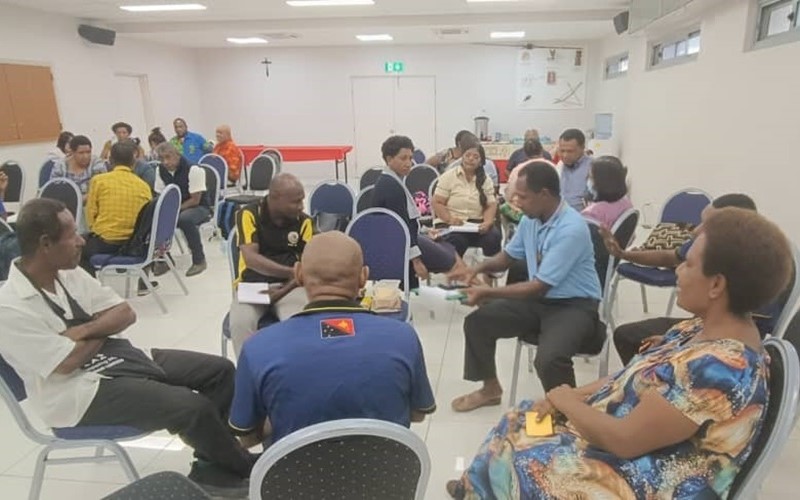
Photo courtesy Dr Janet Subagan-Mondez, Deputy Principal-Curriculum, FODE
By Dr Tony Mays
Director: Education COL
There are 33 small states, which make up over 60 per cent of the countries in the Commonwealth.
As the Partnership for ODFL in the Pacific notes, open, distance and flexible learning (ODFL) is an essential channel for increasing educational opportunities and outcomes. It is particularly relevant for the small island states, given small, dispersed remote populations and limited access to secondary and post-secondary opportunities in rural and outer island locations. However, it could be useful for any small state struggling to provide access to secondary schooling for all. Despite the potential of ODFL, there has been relatively limited investment. The Covid-19 pandemic further reinforced the need for small states to be better prepared for non-contact teaching and provision of learning approaches outside of traditional classroom-based practices.
Success in implementing ODFL should lead to the following outcomes:
- Education continuity supported through natural disasters and other emergency situations;
- More equitable access to learning and training opportunities resulting in improved employability, reduced unemployment and enhanced opportunities for entrepreneurship, including for young people, particularly women and persons with disabilities (PWD); and
- Increased access to relevant, high-quality and contextualised tools and resources that improve the effectiveness and efficiency of education systems in Commonwealth countries.
However, effective interventions in the ODFL space require an understanding of teachers and teacher identity in general and specific contextual and cultural dynamics, as well as of the role of technology in teaching.
Conceptual Framework
Teacher Identity is formed over years of experience as a learner in school, a student teacher in college, and, eventually, a classroom teacher in a school. For most teachers currently in service, these experiences were all framed by engagement in a physical space. However, adopting ODFL, and in particular supporting effective, fully online learning, requires a new set of capabilities on the part of teachers. How do teachers then begin to reimagine their roles and change their practices?
Several facets make up the teacher’s role:
- Teachers as professionals need spaces for the sharing of professional experiences.
- Teachers are also managers of people, resources, time and reporting, among other things.
- Teachers act as caregivers in loco parentis in the physical classroom setting.
- Teachers develop a range of pedagogic practices throughout their careers.
- Teachers are also phase or subject specialists.
Effective intervention must address all these different aspects of a teacher’s identity. In addition, interventions must be approached in ways that are sensitive to the cultural diversity within a country or region.
Moreover, it is important to understand that for effective continuing professional development (CPD), it is not enough for teachers simply to have mastered the content they are required to teach; they must also know how best to teach that content in ways that help pupils to learn effectively. Moreover, given the increasing use of technology in teaching, it is also essential for teachers to make informed decisions about what technologies are best used in what ways and for what learning purposes. Support and assessment in this regard can be usefully informed by UNESCO’s ICT Competency Framework for Teachers.
Examples of CPD interventions
The following aspects of COL’s current work in the Pacific could be adapted for other small states as required:
- Promoting the revision, use and sharing of OER
- Developing and offering open short courses which could be recognised for CPD points or provide routes into formal qualifications
- Keeping teachers aware of CPD opportunities
- Responding to requests to co-develop useful guides for practice
Conclusion
Increased use of ODFL approaches can help the small states reach learners who have not previously been reached and ensure continuity of learning in the face of several events which may impact traditional face-to-face provision. However, the experience of most teachers has been shaped by working in a physical setting and traditional classroom-based teaching. Therefore, it is imperative that teachers are offered continuous professional development opportunities to acquire and practise new skills related to ICT use and ODFL practices. We will have the most impact if CPD interventions speak to contextual realities, are recognised for CPD points/hours and where there is active mentorship by Ministry officials or Ministry-appointed senior teachers.


